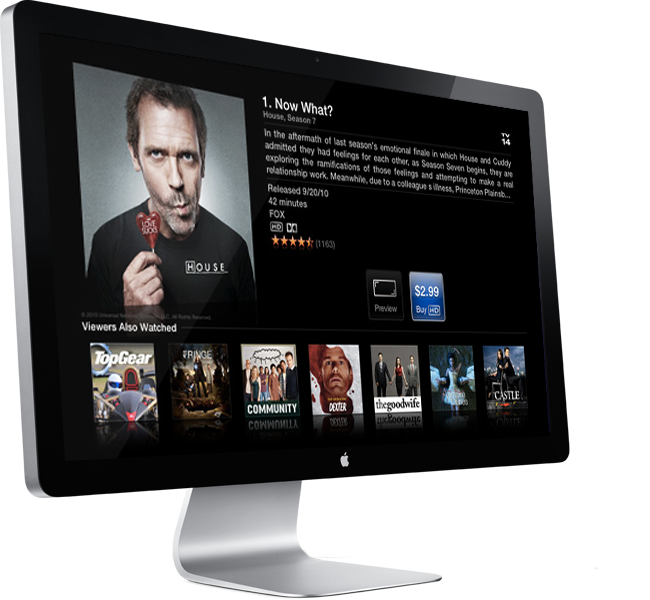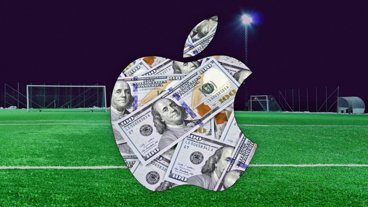Steve Jobs was 'excited' about an Apple HDTV, but content deals are needed
Citing checks with industry and supply chain sources, analyst Shaw Wu with Sterne Agee said there's a belief that Jobs was "very excited" about the prospect of Apple entering the television market. That same enthusiasm was expressed by Jobs to his biographer, when he said that Apple was working on a TV set with "the simplest user interface you could imagine."
While Jobs felt he had solved the issue of confusing user interfaces with TVs, Wu said one problem Apple has yet to resolve are licensing deals with content providers. Those terms, which have yet to be ironed out, are said to be the main roadblock preventing Apple from selling an HDTV.
Wu said sources have told him that Apple "would love" to allow users to choose customized programming for a monthly subscription fee. With this plan, users could choose whatever channels or shows they wanted to subscribe to, offering an "a la carte" option instead of bundles with dozens of channels as currently provided by cable operators.
As far back as 2009, Apple was said to have pitched a $30-per-month iTunes subscription plan to content providers. But that concept never gained any traction.
Another content-related obstacle for Apple is live television. Wu said that Apple could "bypass" this by integrating its TV with existing cable or satellite providers, but he thinks Apple could better differentiate its product if it were able to offer live programming over the Internet.
But as more users look to "cut the cord" and end their cable or satellite TV service, Wu believes content providers may, ironically, need to turn to Apple to bring back subscribers. He compared it to how music publishers turned to Apple and iTunes in the face of rising piracy.
Still, with so much depending on licensing deals for content, he believes that Apple has a lot of work ahead of it before it can bring a full-fledged television set to market.
"Because of the high dependence on content providers," he said, "we believe exact timing of a 'real' Apple TV shipping is difficult to pinpoint."
 Neil Hughes
Neil Hughes











 Marko Zivkovic
Marko Zivkovic
 Amber Neely
Amber Neely
 Christine McKee
Christine McKee
 Malcolm Owen
Malcolm Owen
 Mike Wuerthele and Malcolm Owen
Mike Wuerthele and Malcolm Owen

 William Gallagher
William Gallagher







